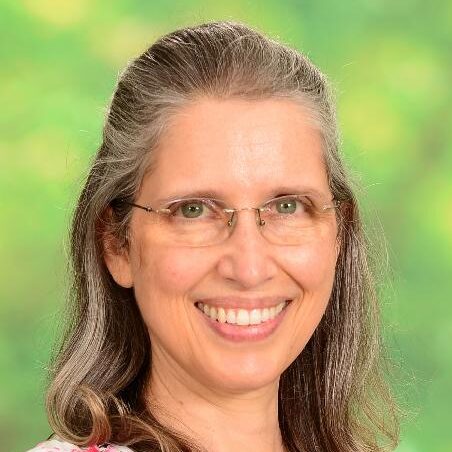There are so many definitions for PLAY. Like the one we find in Wikipedia: “Play is a range of intrinsically motivated activities done for recreational pleasure and enjoyment. Play is commonly associated with children and juvenile-level activities, but play occurs at any life stage, and among other higher-functioning animals as well, most notably mammals and birds”. However, for us, play is much, much more than that.
There is an enormous amount of research, talking about the importance of play in human development. They state that learning through play happens through joyful, actively engaging, meaningful, iterative, and socially interactive experiences. We also know that learning through play supports overall healthy development, acquisition of both content (e.g. maths) and learning-to-learn skills (e.g. executive function, such as problem-solving, following directions, focus and attention, regulation of emotions, etc).
Our goal at St. Nicholas is to develop creative, engaged, lifelong learners who thrive in a 21st century world. Neuroscience presents us with strong pieces of evidence for the profound influence of early experiences. In order to build healthy brain connections, young children need responsive and rich interactions with the environment and people. In playful experiences and when playing together, children are not only having fun but are building important skills.
Imagine a group of children playing on a playground. They pretend to be a family, with children taking different roles, the parents, the siblings, even the family pet. At first, this appears to be a simple game of pretend play. But when viewed through the lens of playful learning, we can see that children are actually building much more than a pretend family. As they negotiate roles, they are building the skills of communication and collaboration. As they look around for new materials to incorporate into their pretend reality, they are exhibiting creative innovation (e.g. a bicycle turned upside down becomes an ice cream truck). When they pay the ice-cream seller with their “currency” (e.g. sticks) they are exercising maths and language. As the younger ones begin to question the “rules” imposed by the older children, they are practising their critical thinking skills. As they are acting out things outside of their comfort zones, they are building confidence in themselves and their ability to face new challenges.
Beyond enjoyment, playful experiences have the potential to help children not only to be happy and healthy in their lives today but also develop the skills to be creative, engaged, lifelong learners of tomorrow. Diamond, Barnett, Thomas & Munro (2007) and Hyson, Copple & Jones (2007), found that children attending early years using play-based curriculum achieved higher scores on measures of executive function, skills underpinning self-regulatory abilities than children attending regular, instruction-based pre-schools.
We believe that children are born to learn through play. They possess an amazing and natural potential to learn since they are born. They have even been referred to as “scientists in the crib” due to their natural curiosity and drive. Research has repeatedly shown that play experiences are not merely fun, not just a way to pass the time along the way to adulthood. Instead, play has a central role in learning and in preparing the children for challenges through life.
Play captures many of the features that we know from research that lead to deeper learning. Children are intrinsically motivated to play, which makes it a fertile ground for learning and developing new skills. During play, children can take charge, making choices about what they do and how. Whether adults are supporting or not, a critical requirement for learning through play is that children must experience agency and be supported rather than directed.
At school, we try to give children as much as possible, uninterrupted time for play. Yes, we have to stop playing to go to the bathroom or to go home, but the rest of the time they can experience true play. A joyful experience and joy are at the heart of play. Joy meaning: pleasure, enjoyment, motivation, thrill, and a positive emotion. Saying that learning through play must be joyful does not mean that there can be no negative or neutral emotions at all. Sometimes frustration with a problem is necessary to feel the joy of a breakthrough when it is finally solved.
In play, children often explore what they have seen and done, or noticed others doing, a way of grasping what it means. By doing so, they can express and expand their understanding. Learning through play also involves being actively engaged. A child that is absorbed in playing with a set of building blocks, is actively imagining how the pieces will go together and is so immersed that she fails to hear her mother call her for dinner. This immersion and resistance to distraction is a hallmark of both play and learning separately, but seems to be especially powerful within the context of learning through play.
When the children come home and answer to a frequent question “What did you do today at school?”
“Play!”
You can celebrate and be sure that she or he learned a great deal!
Bibliography
This text is a copilaton of parts of 2 white papers from Lego Fundation:
JENSEN, H.; PYLE, A., ZOSH, J. M.; EBRAHIM, H. B.; ZARAGOZA-SCHERMAN, A.; REUNAMO, J.; HAMRE, B. K. Play facilitation: the science behind the art of engaging young children. [White paper]. The LEGO Foundation, DK, feb. 2019. Available in: https://www.legofoundation.com/media/1681/play-facilitation_the-science-behind-the-art-of-engaging-young-children.pdf. Accessed in: nov. 30th 2021.
WHITEBREAD, D.; NEALE, N.; JENSEN, H.; LIU; C.; SOLIS, S. L.; HOPKINS, E.; HIRSH-PASEK, K.; ZOSH, J. The role of play in children’s development: a review of the evidence. [White paper]. The Lego Foundation, DK, nov. 2017. Available in: https://www.legofoundation.com/media/1065/play-types-_-development-review_web.pdf. Acessed in: nov. 30th 2021.
Paola Cunha, Early Years lead learner at St. Nicholas School for the last 24 years, biologist bachelor and co-author of a book of inclusive practices at schools.


